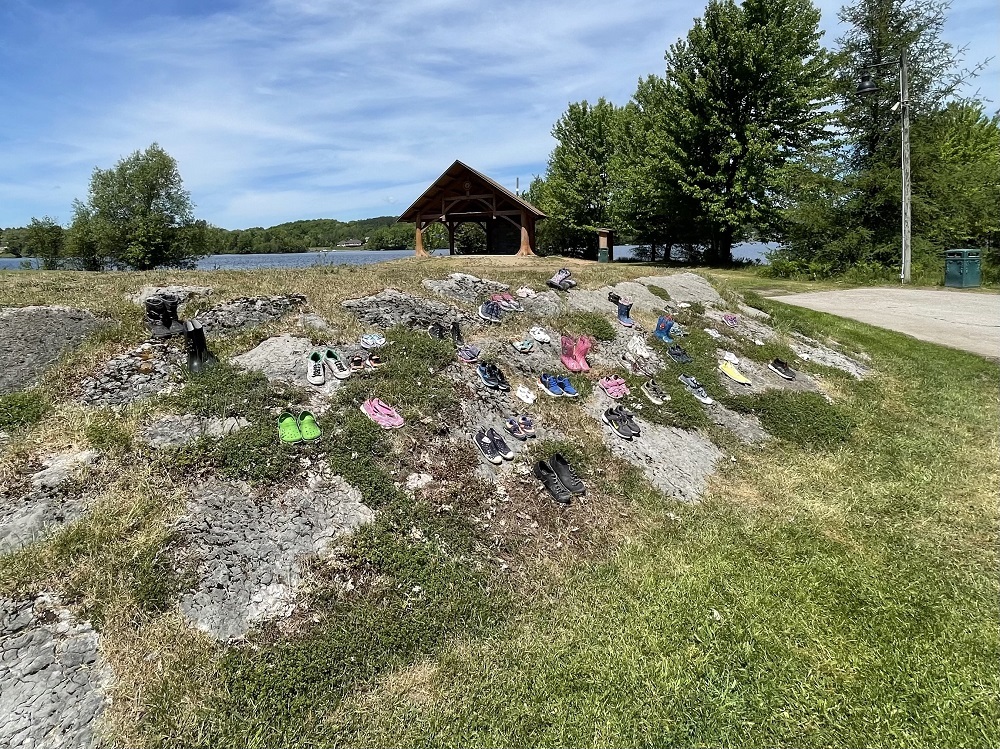By Sam Gillett & Lisa Gervais
More than 40 pairs of children’s shoes dot the rocks by Haliburton’s waterfront.
They were laid in memory of the 215 children whose graves were uncovered at the site of a former residential school in Kamloops, BC.
Ashley Wilson posted on Facebook after she and her family placed shoes on the rocks. By the next day, many others had come to put footwear and pay their respects.
After seeing the cross-Canada call from Indigenous people and organizations, she thought it was important to bring that to Haliburton County.
“It’s something that I have personally myself paid attention to and tried to educate others [about],” Wilson said.
“When I saw it, it was devastating and disgusting, and sad.”
“We sometimes are a bit sheltered to what is going on across the country. I think it’s really important people are aware of the ongoing trauma that Indigenous people face because of residential schools.”
Val Balaski, who has ties to Haliburton County, is Indigenous.
“My heart is broken. I mourn the loss of these dear souls who never did anything but be born First Nations, Inuit or Metis,” she told The Highlander.
“The families that never knew what happened to their babies. I can’t imagine the pain. I pray with this discovery more of the residential school ‘concentration camps’ will reveal more little ones that need to go home to the Creator. May they rest in peace.”
In 2015, the Truth and Reconciliation Commission of Canada (TRC) determined that Canada’s forced assimilation of 150,000 Indigenous peoples between the 1870s and 1990s amounted to cultural genocide.
“It’s not ancient history – the last residential school in Canada closed very recently,” said Kate Butler, director of the Haliburton Highlands Museum. “It’s a big issue.”
Butler said the museum is committed to educating and informing non-Indigenous people around Haliburton County about the history of their country.
“Always remember the story of Haliburton County doesn’t go back 150 years – this land has a history that goes back so much further,” she said.
For people looking to find out more about residential schools, Butler said museums are a great place to turn.
“We’re looking for ways all the time to better tell the story of Indigenous settlement. It’s something that needs to be ongoing, for people to seek out those sources, and continue to learn, and continue to connect with Indigenous voices and to listen to what’s being said. If people want to talk about it, connect with us.”
A nationwide Indian Residential School Crisis Line is available for former students and others affected. To access emotional and crisis referral services, call the 24-hour national crisis line: 1-866-925-4419.





